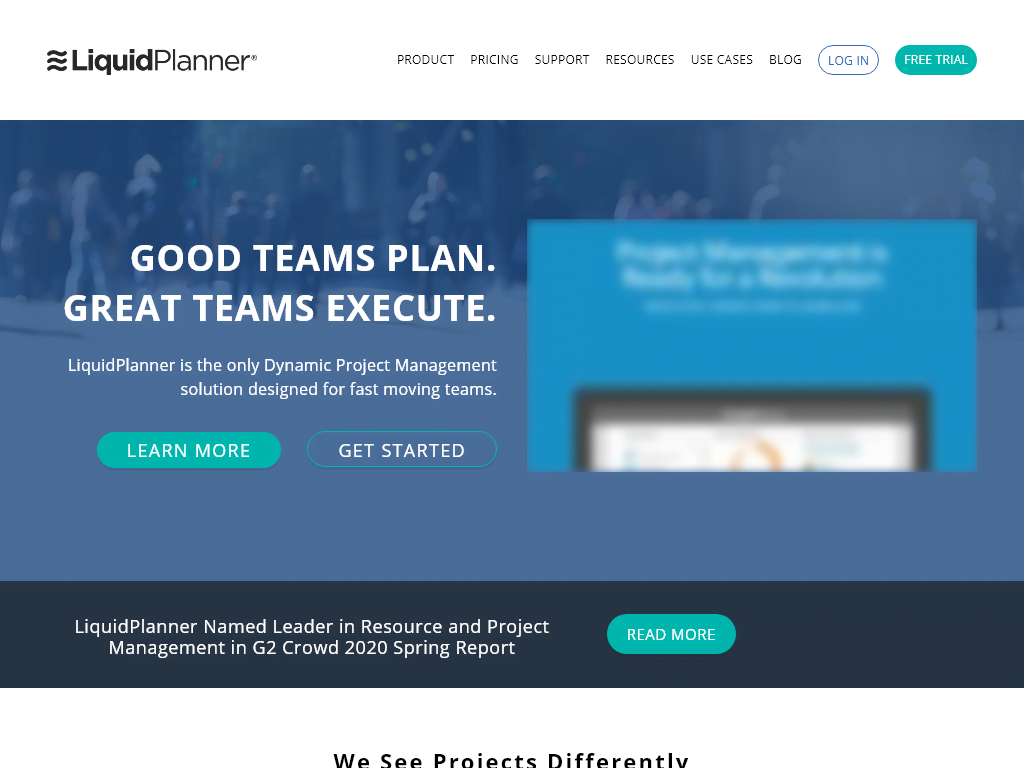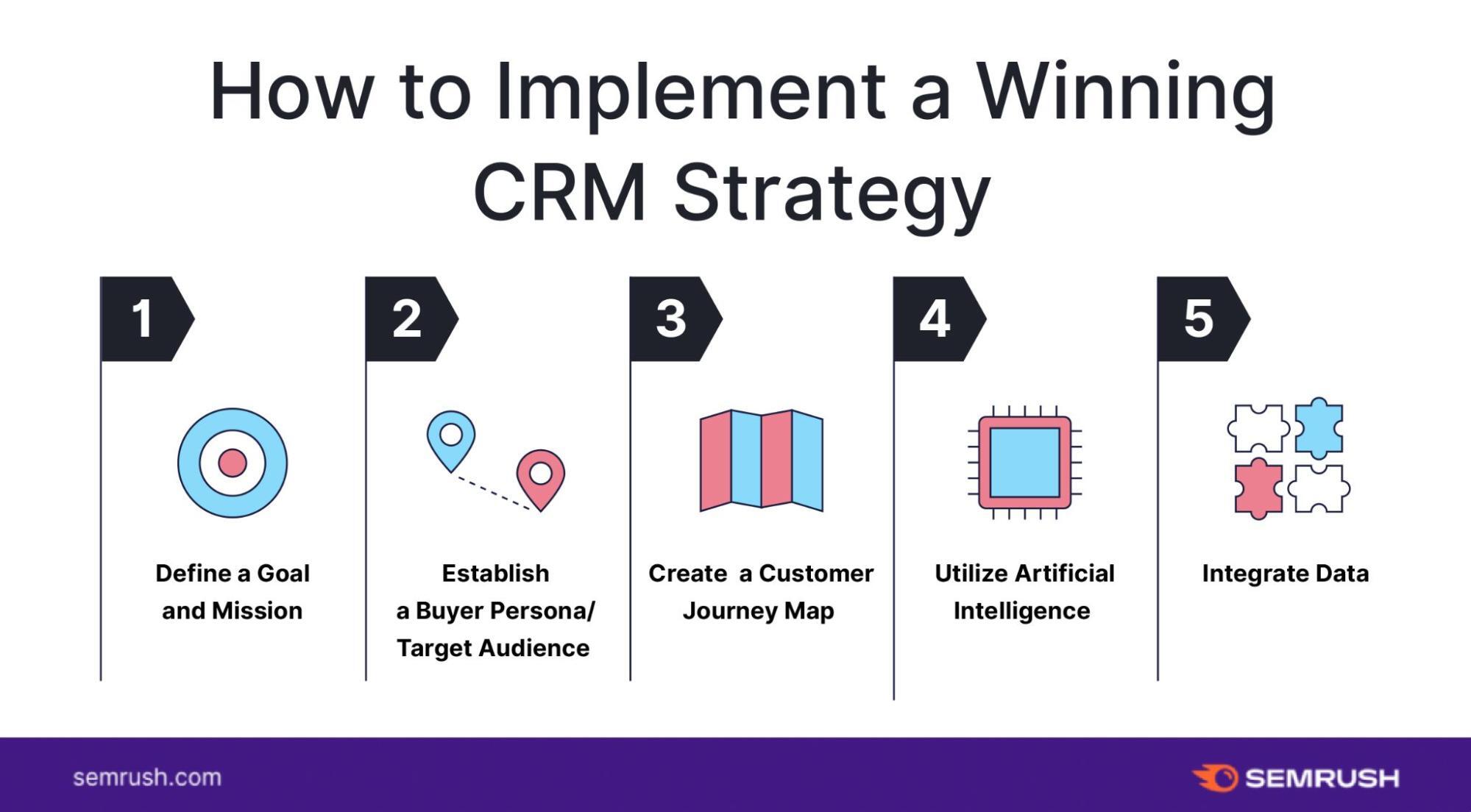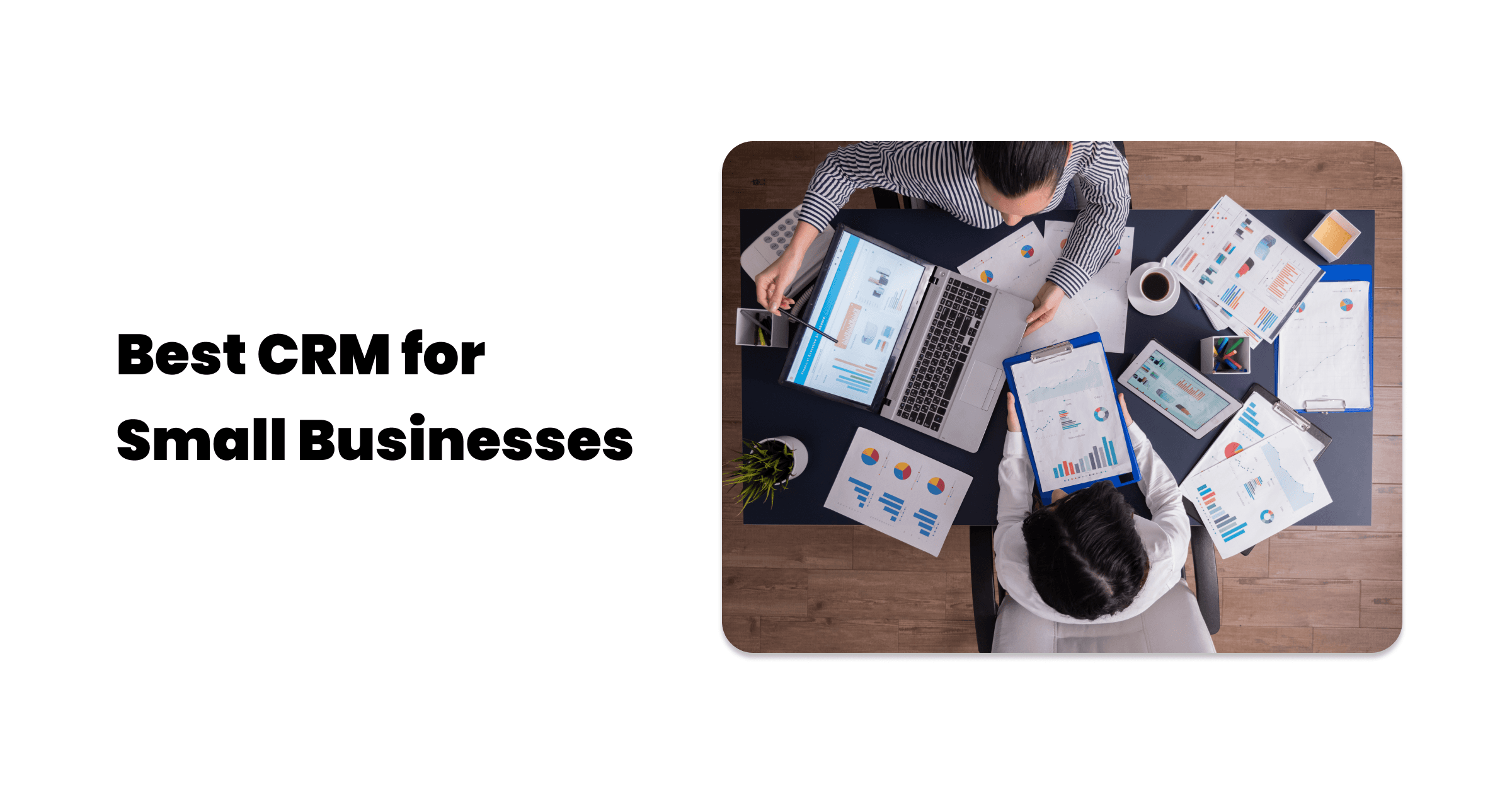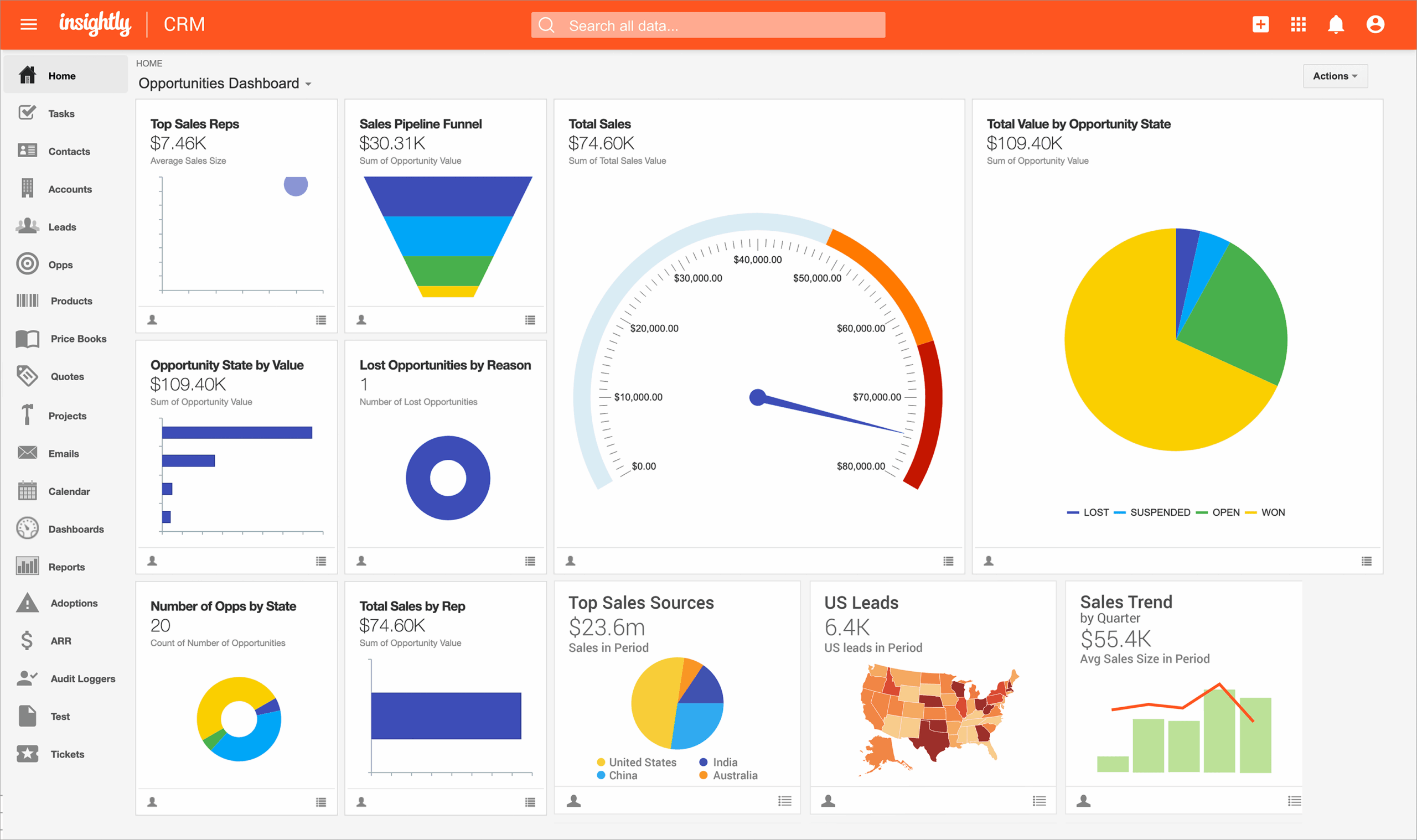Unlock Growth: The Game-Changing Benefits of CRM for Small Businesses
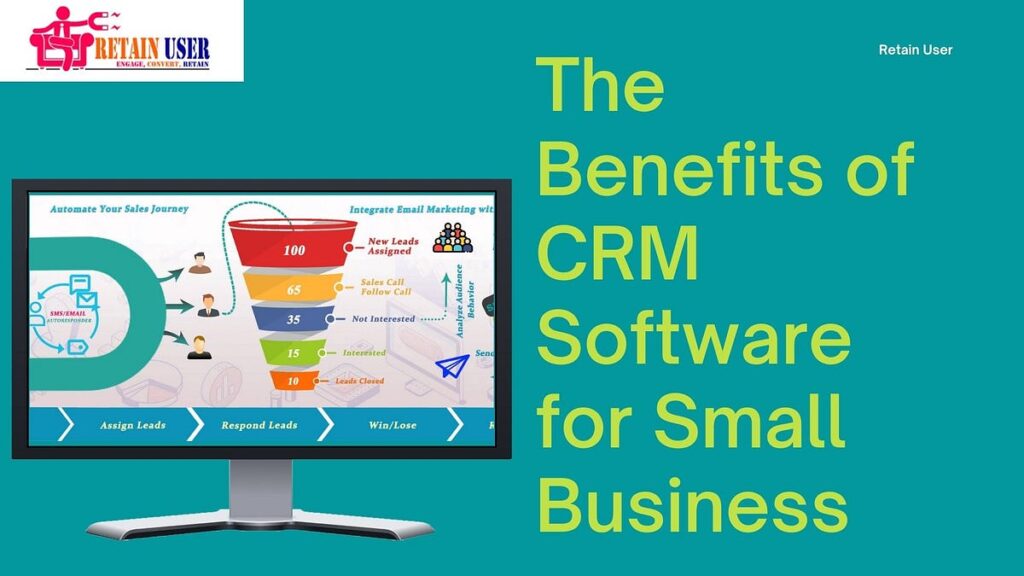
Introduction: Why Your Small Business Needs a CRM
Running a small business is a whirlwind. You’re juggling a million things – from product development and marketing to customer service and finances. In the midst of all this, it’s easy for crucial details to slip through the cracks. That’s where a Customer Relationship Management (CRM) system comes in. It’s not just for the big corporations; in fact, a CRM can be a game-changer for small businesses, offering a streamlined way to manage customer interactions and boost overall efficiency. This article will delve into the multitude of small business CRM benefits, showing you exactly how this powerful tool can transform your operations and drive growth.
Forget clunky spreadsheets and scattered email threads. A CRM centralizes all your customer data, providing a 360-degree view of every interaction. This means you can personalize your communication, anticipate customer needs, and build stronger relationships. In today’s competitive landscape, customer relationships are everything. A CRM empowers you to foster those connections, turning leads into loyal customers and advocates for your brand.
Understanding the Basics: What is a CRM System?
Before we dive into the benefits, let’s clarify what a CRM system actually is. At its core, a CRM is a software solution designed to manage and analyze customer interactions and data throughout the customer lifecycle. It’s a central hub for all customer-related information, including contact details, communication history, purchase history, and more. Think of it as your business’s memory, keeping track of everything you need to know about your customers.
A good CRM system goes beyond simple contact management. It often includes features such as:
- Contact Management: Storing and organizing contact information, including names, addresses, phone numbers, and email addresses.
- Lead Management: Tracking potential customers (leads) through the sales pipeline.
- Sales Automation: Automating repetitive sales tasks, such as sending follow-up emails and scheduling appointments.
- Marketing Automation: Automating marketing campaigns, such as email marketing and social media posting.
- Customer Service Management: Managing customer inquiries, complaints, and support requests.
- Reporting and Analytics: Providing insights into customer behavior, sales performance, and marketing effectiveness.
The beauty of a CRM is its adaptability. It can be tailored to fit the specific needs of your small business, whether you’re a startup with a handful of employees or a growing company with a larger team. The key is to choose a CRM that aligns with your goals and provides the features you need to succeed.
Benefit 1: Enhanced Customer Relationships and Improved Customer Satisfaction
One of the most significant small business CRM benefits is the ability to build stronger customer relationships. By centralizing customer data, a CRM allows you to understand your customers better than ever before. You can track their interactions, preferences, and purchase history, giving you valuable insights into their needs and desires. This, in turn, enables you to personalize your interactions and tailor your offerings to meet their specific requirements.
Imagine this: A customer calls with a question about a product they purchased last year. With a CRM, your customer service representative can instantly access their purchase history, understand their previous interactions, and provide a relevant and helpful response. This level of personalized service creates a positive customer experience, fostering loyalty and encouraging repeat business.
Here’s how a CRM enhances customer relationships:
- Personalized Communication: Knowing a customer’s name, purchase history, and preferences allows you to tailor your communication, making it more relevant and engaging.
- Proactive Service: By tracking customer interactions, you can anticipate their needs and proactively offer solutions or support.
- Faster Response Times: A CRM provides quick access to customer information, enabling you to respond to inquiries and resolve issues more efficiently.
- Improved Customer Loyalty: By providing exceptional service and building strong relationships, you can increase customer loyalty and reduce churn.
In today’s world, where customers have countless choices, building strong relationships is crucial for survival. A CRM is your secret weapon for making your customers feel valued, understood, and appreciated.
Benefit 2: Increased Sales and Revenue Generation
Beyond customer relationships, a CRM is a powerful tool for boosting sales and revenue. By streamlining the sales process, automating tasks, and providing valuable insights, a CRM can help your sales team close more deals and generate more income. It transforms your sales efforts from reactive to proactive, empowering your team to identify and pursue the most promising leads.
A CRM helps you:
- Manage Leads Effectively: Track leads through the sales pipeline, ensuring that no potential customer falls through the cracks.
- Automate Sales Tasks: Automate repetitive tasks, such as sending follow-up emails and scheduling appointments, freeing up your sales team to focus on closing deals.
- Improve Sales Forecasting: Gain insights into your sales pipeline and predict future revenue, allowing you to make informed business decisions.
- Identify Upselling and Cross-selling Opportunities: Analyze customer purchase history and identify opportunities to offer additional products or services.
- Track Sales Performance: Monitor the performance of your sales team, identify areas for improvement, and optimize your sales strategies.
By providing your sales team with the tools and information they need to succeed, a CRM can significantly increase your sales revenue. It’s like giving your sales team a supercharger, enabling them to work smarter, not harder.
Benefit 3: Improved Efficiency and Productivity
Time is money, especially for a small business. One of the key small business CRM benefits is its ability to improve efficiency and productivity. By automating tasks, centralizing information, and streamlining workflows, a CRM frees up your employees to focus on more important activities, such as customer service, product development, and strategic planning.
Here’s how a CRM boosts efficiency:
- Automation of Tasks: Automate repetitive tasks, such as data entry, email sending, and appointment scheduling.
- Centralized Information: Store all customer-related information in one central location, eliminating the need to search through multiple spreadsheets and databases.
- Streamlined Workflows: Automate workflows, such as lead nurturing and sales processes, to ensure that tasks are completed efficiently and consistently.
- Improved Collaboration: Facilitate collaboration among team members, ensuring that everyone has access to the same information and can work together effectively.
- Reduced Manual Errors: By automating tasks and centralizing information, a CRM reduces the risk of manual errors, such as data entry mistakes.
By streamlining your operations, a CRM can significantly improve your efficiency and productivity, allowing you to do more with less. This, in turn, can lead to increased profitability and a more sustainable business model.
Benefit 4: Data-Driven Decision Making and Improved Insights
In today’s data-driven world, making informed decisions is crucial for success. One of the often-overlooked small business CRM benefits is its ability to provide valuable insights into your customer behavior, sales performance, and marketing effectiveness. By analyzing the data stored within your CRM, you can gain a deeper understanding of your business and make more informed decisions.
A CRM provides insights through:
- Reporting and Analytics: Generate reports on key metrics, such as sales performance, customer acquisition costs, and customer satisfaction.
- Customer Segmentation: Segment your customers based on various criteria, such as demographics, purchase history, and engagement levels.
- Trend Analysis: Identify trends in customer behavior, sales performance, and marketing effectiveness, allowing you to adapt your strategies accordingly.
- Sales Forecasting: Predict future revenue based on your sales pipeline and historical data, allowing you to make informed business decisions.
- Marketing Campaign Analysis: Track the performance of your marketing campaigns, identify which campaigns are most effective, and optimize your marketing spend.
By providing these insights, a CRM empowers you to make data-driven decisions, improve your business performance, and stay ahead of the competition. It’s like having a crystal ball that reveals the secrets to your success.
Benefit 5: Enhanced Marketing Effectiveness
Marketing is essential for attracting new customers and growing your business. A CRM can significantly enhance your marketing effectiveness by providing valuable insights into your customer base and automating your marketing efforts. By understanding your customers better, you can create more targeted and effective marketing campaigns that resonate with their needs and interests. This is a crucial aspect of small business CRM benefits.
Here’s how a CRM improves marketing effectiveness:
- Customer Segmentation: Segment your customers based on various criteria, such as demographics, purchase history, and engagement levels, allowing you to create targeted marketing campaigns.
- Personalized Marketing: Personalize your marketing messages based on customer preferences and behavior, making them more relevant and engaging.
- Automated Marketing Campaigns: Automate your marketing campaigns, such as email marketing and social media posting, freeing up your time and resources.
- Lead Nurturing: Nurture leads through the sales pipeline by sending them relevant content and offers, increasing their likelihood of becoming customers.
- Campaign Tracking and Analysis: Track the performance of your marketing campaigns, identify which campaigns are most effective, and optimize your marketing spend.
By enhancing your marketing effectiveness, a CRM can help you attract more leads, convert them into customers, and grow your business. It’s like having a marketing powerhouse at your fingertips.
Benefit 6: Improved Collaboration and Communication
Effective collaboration and communication are essential for any successful business, and this is another significant area where a CRM shines. A CRM acts as a central hub for all customer-related information, making it easy for team members to share information, collaborate on projects, and communicate effectively. This is particularly important for small businesses where teamwork and communication are critical to success. This is a very important of the small business CRM benefits.
Here’s how a CRM improves collaboration and communication:
- Centralized Information: All customer-related information is stored in one central location, ensuring that everyone has access to the same information.
- Shared Access: Team members can easily access and share customer information, regardless of their location.
- Activity Tracking: Track customer interactions and activities, allowing team members to stay informed about the latest developments.
- Internal Communication Tools: Many CRM systems include internal communication tools, such as chat and messaging, making it easy for team members to communicate and collaborate.
- Improved Coordination: Facilitate better coordination between different departments, such as sales, marketing, and customer service.
By improving collaboration and communication, a CRM can help your team work more efficiently, reduce errors, and provide a better customer experience. It’s like building a strong foundation for your business, ensuring that everyone is on the same page and working towards the same goals.
Benefit 7: Scalability and Future-Proofing Your Business
As your small business grows, your needs will evolve. A CRM is designed to scale with your business, adapting to your changing needs and supporting your long-term growth goals. This is one of the most forward-thinking small business CRM benefits.
Here’s how a CRM helps you scale your business:
- Adaptability: A CRM can be customized to fit your specific needs, regardless of your size or industry.
- Integration: A CRM can integrate with other business systems, such as accounting software and email marketing platforms, streamlining your operations.
- Automation: Automate tasks and processes to free up your time and resources as your business grows.
- Reporting and Analytics: Generate reports on key metrics, providing insights into your business performance and helping you make informed decisions.
- User Management: Manage user access and permissions, ensuring that your data is secure and that your employees have the information they need to succeed.
By choosing a CRM that can scale with your business, you’re future-proofing your operations and ensuring that you have the tools you need to succeed in the long run. It’s like building a solid foundation for future growth.
Choosing the Right CRM for Your Small Business
Now that you understand the many small business CRM benefits, it’s time to choose the right CRM for your business. With so many options available, it’s essential to carefully consider your needs and priorities. Here are some factors to consider when choosing a CRM:
- Your Business Needs: What are your specific needs and goals? What features are essential for your business?
- Ease of Use: Is the CRM easy to use and navigate? Is it user-friendly for your employees?
- Features and Functionality: Does the CRM offer the features and functionality you need, such as contact management, lead management, sales automation, and marketing automation?
- Integration: Does the CRM integrate with your existing business systems, such as accounting software and email marketing platforms?
- Cost: What is the cost of the CRM? Does it fit within your budget?
- Scalability: Can the CRM scale with your business as it grows?
- Customer Support: Does the CRM provider offer good customer support?
Once you’ve considered these factors, you can start researching different CRM systems and comparing their features and pricing. Take advantage of free trials and demos to test out different systems and see which one is the best fit for your business. Don’t be afraid to ask questions and seek advice from other small business owners.
Implementation and Training
Once you’ve chosen a CRM, the next step is implementation. This involves setting up the system, importing your data, and training your employees. Proper implementation and training are crucial for ensuring that your CRM is used effectively and that your employees are able to take full advantage of its features. This is where a lot of businesses stumble, so make sure you plan this stage well.
Here are some tips for successful implementation and training:
- Plan Ahead: Develop a detailed implementation plan, outlining the steps involved and the timeline for completion.
- Data Migration: Carefully migrate your data from your existing systems to the CRM, ensuring that all data is accurate and complete.
- Training: Provide thorough training to your employees, covering all aspects of the CRM and its features.
- Ongoing Support: Provide ongoing support and training to your employees, ensuring that they continue to use the CRM effectively.
- Customization: Customize the CRM to fit your specific needs, such as creating custom fields and workflows.
By following these tips, you can ensure a smooth implementation process and maximize the benefits of your CRM.
Conclusion: Embrace the Power of CRM
In conclusion, a CRM system is an invaluable asset for any small business looking to grow and succeed. The small business CRM benefits extend far beyond simply organizing contacts; they encompass enhanced customer relationships, increased sales, improved efficiency, data-driven decision-making, and much more. By implementing a CRM, you can streamline your operations, improve your customer service, and gain a competitive edge in today’s market.
Don’t let your business fall behind. Embrace the power of CRM and take your small business to the next level. It’s an investment that will pay dividends for years to come. The time to act is now!


